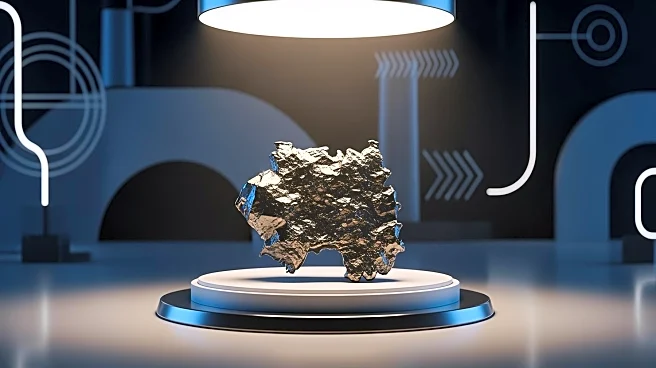What's Happening?
Guinea has launched its Simandou iron ore project, aiming to produce 120 million metric tons of high-grade iron ore annually. The project is expected to impact global iron ore prices, as Guinea seeks to keep
prices high despite China's efforts to centralize imports and drive down costs. Simandou is 75% Chinese-owned, with most of its output destined for China. Guinea's Minister of Mines, Bouna Sylla, stated that the country plans to leverage Rio Tinto's expertise and bypass China to sell directly to Europe and the Middle East. The project targets the premium segment used for green steel, with Guinea holding 15% stakes in mines, infrastructure, and future steel plants.
Why It's Important?
The launch of the Simandou project positions Guinea as a significant player in the global iron ore market, potentially reshaping market dynamics and influencing prices. By targeting the green steel segment, Guinea aims to capitalize on the growing demand for less carbon-intensive steel production. The project's success could enhance Guinea's economic standing and provide leverage in negotiations with major iron ore consumers like China. Additionally, the development of pellet and direct reduced iron plants could boost Guinea's industrial capabilities and create new economic opportunities. The project's geopolitical implications may also affect international trade relations and resource management strategies.
What's Next?
Guinea's strategy to bypass China and sell directly to other regions may face challenges, given China's dominant position in the iron ore market. The country's ability to maintain high prices will depend on its collaboration with other major producers and its capacity to manage export rates effectively. As production ramps up, Guinea will need to navigate complex geopolitical and economic landscapes to achieve its goals. The project's long-term impact on global iron ore prices and the green steel market will be closely monitored by industry stakeholders and policymakers.










